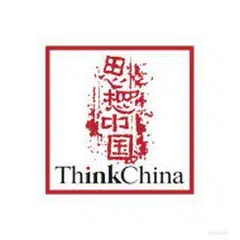Chinese commentator: Macron wants to be different, but does he understand China and the world?
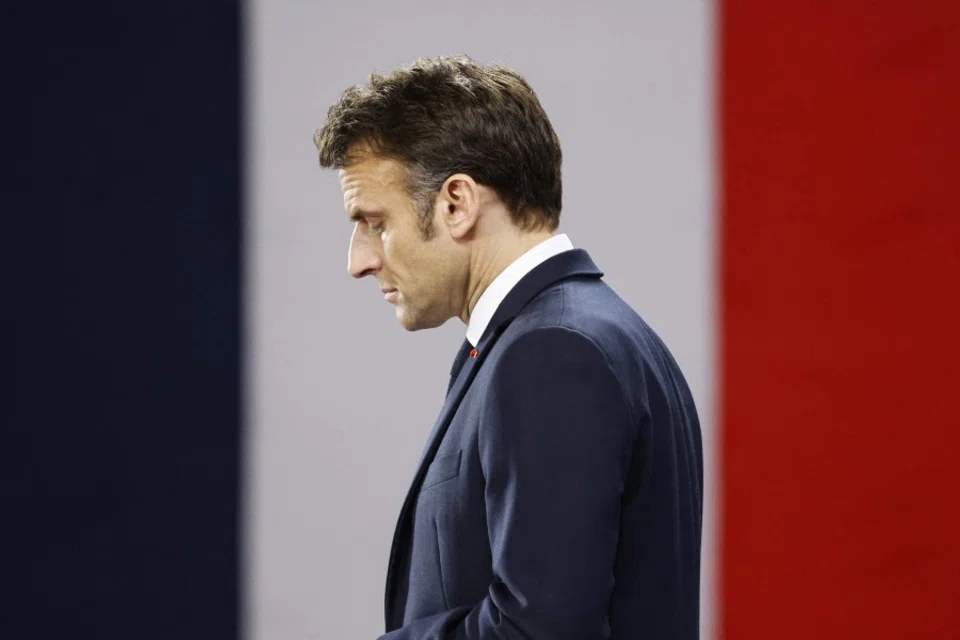
French President Emmanuel Macron is a strong advocate of former French President Charles de Gaulle - no other politician in France seeks inspiration from de Gaulle as much as Macron does.
In his official presidential portrait, Macron stands in front of his office desk on which lies an open book: de Gaulle's war memoirs. Even during his presidential campaign, Macron frequently made references to de Gaulle. And while most people in France opposed Macron's measures on pension reform, he admonished them by saying that if the French emulated de Gaulle and complained less, things would be better.
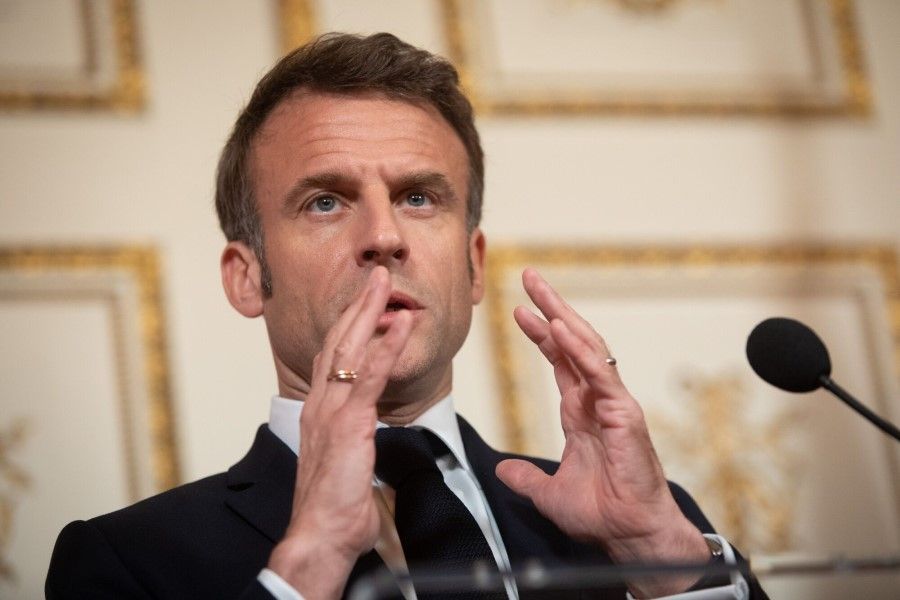
Admirer of Mao and de Gaulle
Macron is also an admirer of Mao Zedong. "Je suis Maoïste (I am a Maoist)", he once said, and has used the Long March as a metaphor. He wrote a manifesto-like book titled Revolution, and advocated "cultural revolutions" in various domains of French society during his election campaign. After he won the presidential election in 2017, his use of quotes from Mao and Deng Xiaoping in media interviews showed his familiarity with the two leaders.
Macron's native France has a tradition of violent revolution - the French Revolution of 1789, the Paris Commune movement of 1871, and the May 1968 student protests have all become fertile ground for the development of Macron's ideas.
Macron's admiration of de Gaulle and Mao provides perspective on his surprising remarks in China. De Gaulle firmly believed that greatness was France's natural quality, thus promoting a policy of "politique de grandeur" (politics of grandeur), calling for France to be completely autonomous in world affairs. De Gaulle also pursued a policy of "national independence" and twice vetoed Britain's entry into the European common market.
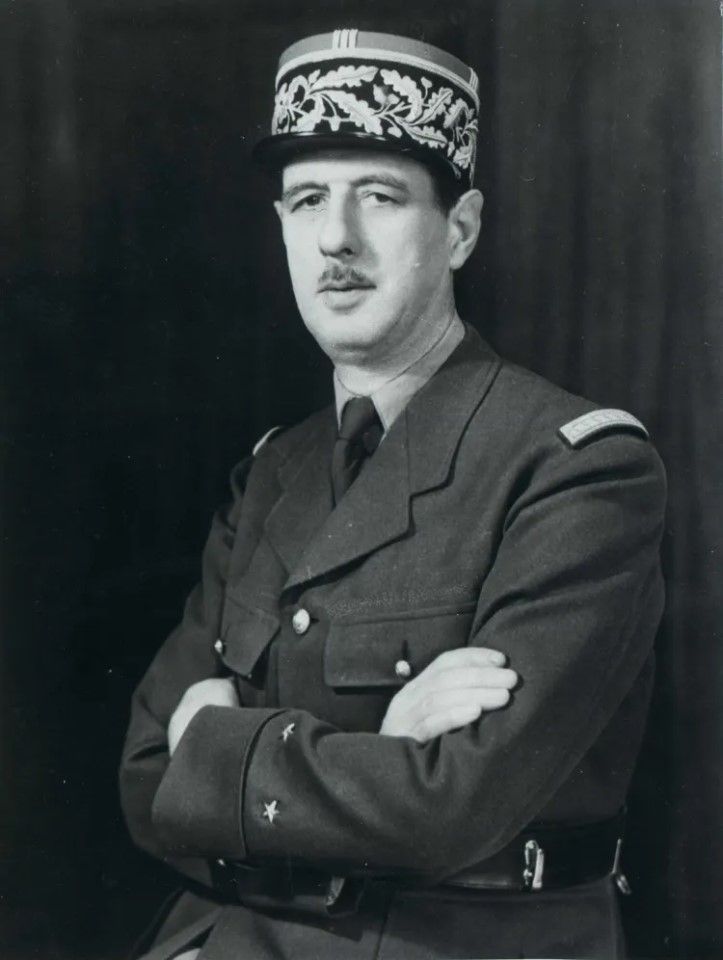
Although he did not formally pull out of NATO, de Gaulle withdrew from its integrated military command. He also opposed the dominance of the US dollar and began shipping US dollars to the US in exchange for gold. He also launched an independent nuclear development programme, making France the fourth nuclear power.
... neither the US nor China shall dictate France's stance.
Mixed reactions from China and the West
In a very significant sense, Mao Zedong's name is synonymous with New China. Admirers of Mao naturally love China, and those who love China will consider its interests from the Chinese government's perspective.
De Gaulle's anti-US sentiments and Mao's spirit of daring to fight against power were integrated into Macron's comments during his visit to China. His remarks about Europe not becoming a follower or vassal of the US and not taking sides in the Taiwan Strait conflict reflect both his love for de Gaulle's anti-US sentiments and Mao's New China.
However, the deeper message in his statement is that the EU should find its own voice in world affairs, rather than allowing others to shape its worldview and interests, and neither the US nor China shall dictate France's stance. Macron has said what most European politicians dare not say publicly - behind closed doors, European leaders are indeed worried about falling in step with Washington and landing in open conflict with China.
China has praised Macron's statements, calling them "very good ideas". The Global Times believes that Macron's remarks are "obviously the result of [his] long-term observation and reflection".
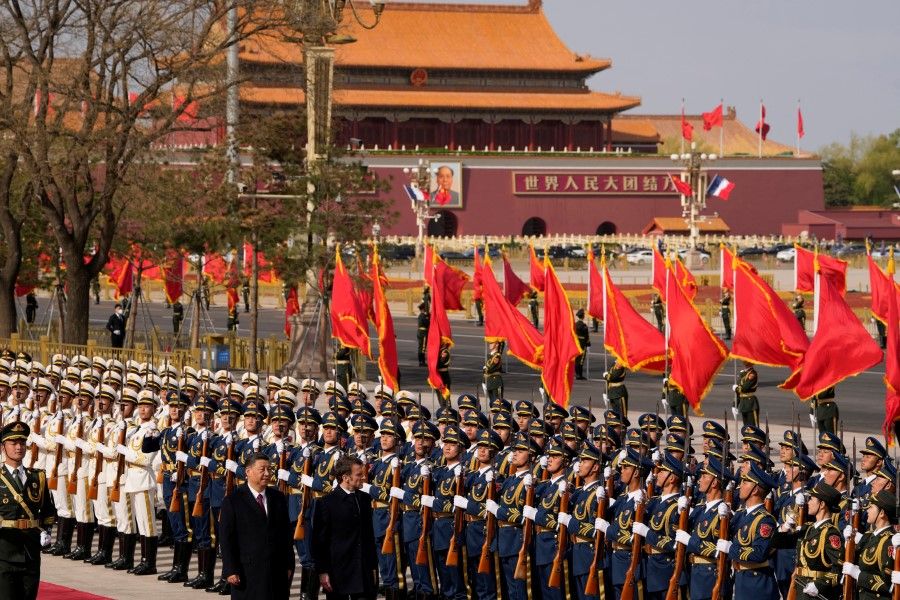
During a regular press conference, China's foreign ministry spokesperson Wang Wenbin emphasised that "[a] certain country is reluctant to see other countries being independent, and often seeks to coerce others into doing its bidding".
The China Daily went a step further, as its EU bureau chief Chen Weihua tweeted: "Macron's words about EU strategic autonomy and resisting a new Cold War and decoupling will also prove to be a brilliant decision."
However, Macron's remarks have been widely panned in the West. Czech Foreign Minister Jan Lipavsky said, "Strong transatlantic relations between Europe and the US are the foundation of our security."
Marcin Przydacz, a foreign policy adviser to Polish President Andrzej Duda, made clear that Warsaw was not in favour of any shift away from Washington. He asserted, "We believe that more America is needed in Europe... Today the United States is more of a guarantee of safety in Europe than France."
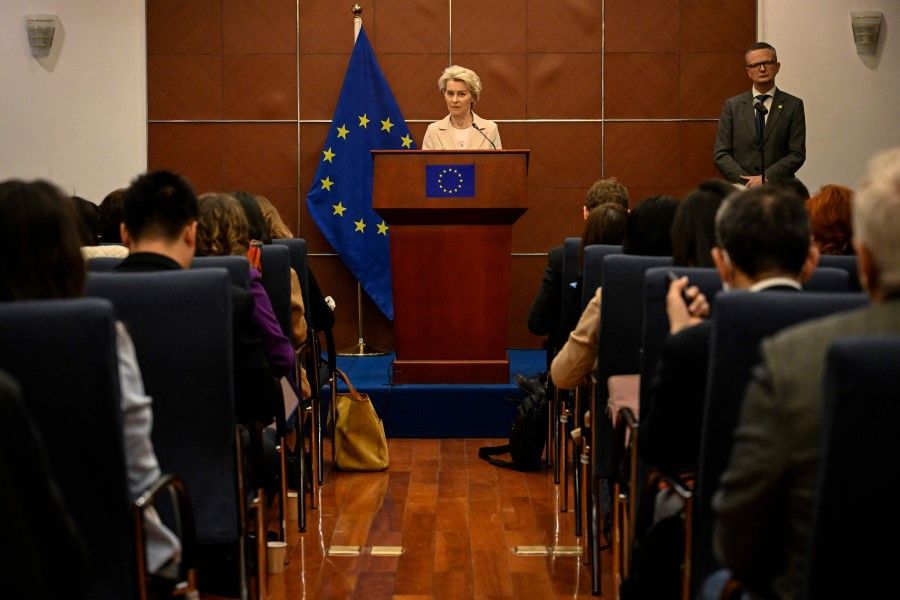
French diplomats scrambled to fight the fires, explaining that Europe becoming a "third pole" does not mean that the region should be equidistant from democratic Washington and authoritarian Beijing. European Commission spokesperson Eric Mamer said the EU remains firmly opposed to the use of force to make any attempt to break the status quo in the Taiwan Strait.
While the statements Macron made in China reflect the political correctness of his worldview, based on his performances on several major international issues, it appears that Macron's knowledge of the outside world could be rather superficial.
Vitality is crucial to NATO - otherwise, why would Eastern and Northern European countries jostle for NATO membership?
Not recognising NATO's vitality
First, the NATO "brain death" theory. Macron's assertion in 2019 that NATO was experiencing "brain death" alarmed both sides of the Atlantic. In 1966, de Gaulle withdrew France from NATO's integrated military command structure, claiming that NATO obligations violated France's sovereignty. De Gaulle's move led to the 1967 Harmel Report, which guided NATO's basic principles for the next fifty years: NATO would adopt a dual-track policy of strong military deterrence and detente with the Soviet Union.
Macron's "brain-dead NATO" remarks prompted NATO Secretary General Jens Stoltenberg to review the intergovernmental alliance. Vitality is crucial to NATO - otherwise, why would Eastern and Northern European countries jostle for NATO membership?
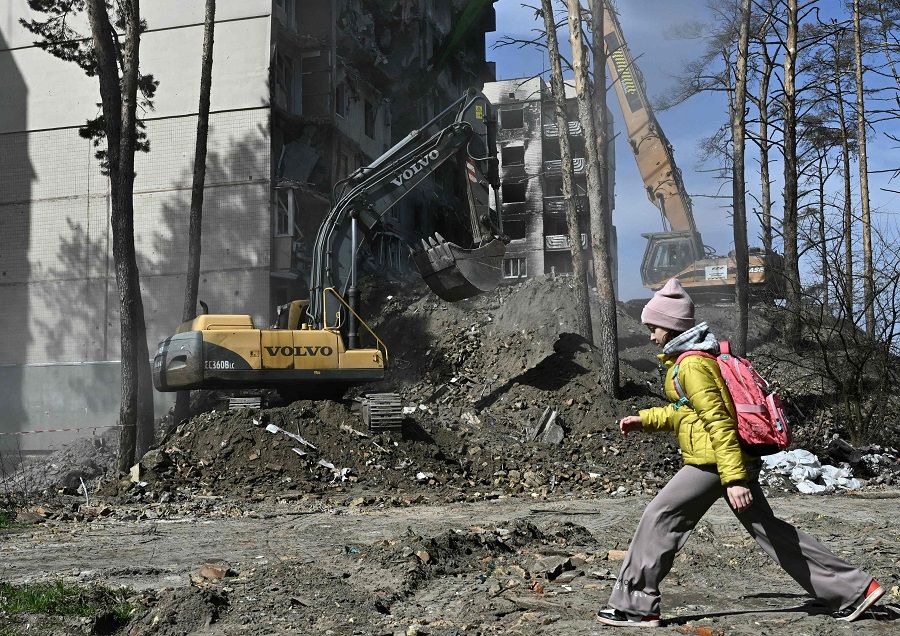
Without NATO, Ukraine would have ceased to exist. NATO's vitality also draws Ukraine in and makes its joining of NATO and the West an unavoidable outcome. The core of the Harmel Report propounds that NATO's existence both maintains and changes the status quo. Ukraine needs NATO, and NATO has changed Ukraine.
Illusions about Russia and Putin
Second, Macron's show of appeasement towards Russian President Vladimir Putin. In the five years prior to Russia's invasion of Ukraine, Macron had over 20 meetings with Putin, a clear illustration of the great importance Macron attaches to Putin. Just days before Putin launched the attack on 24 February, the two leaders held a meeting in Moscow, seated a distance away from each other across a long table. Evidently, Macron failed to achieve anything after three meetings and 42 phone calls, which amounted to hundreds of hours of talk time.
A two-hour documentary titled Un président, l'Europe et la guerre (The President, Europe and War) displayed the whole process of Macron's failed attempts at persuading Putin. On 20 February 2022, Macron and his advisory team believed that they managed to persuade Putin to meet with US President Joe Biden in Geneva. But Macron would later find out that instead of confirming the meeting, Putin began to stall and turned the conversation to sports, telling Macron that he wanted to play ice hockey.
Macron's performance was very much like former UK Prime Minister Neville Chamberlain's back in the day. The Polish prime minister publicly berated Macron for negotiating with Putin, asserting that "nobody negotiated with Hitler".
Macron's worship of de Gaulle is not thorough - if de Gaulle had illusions about Hitler, he would not have fled to England, from where he urged his citizens to resist the Germans.
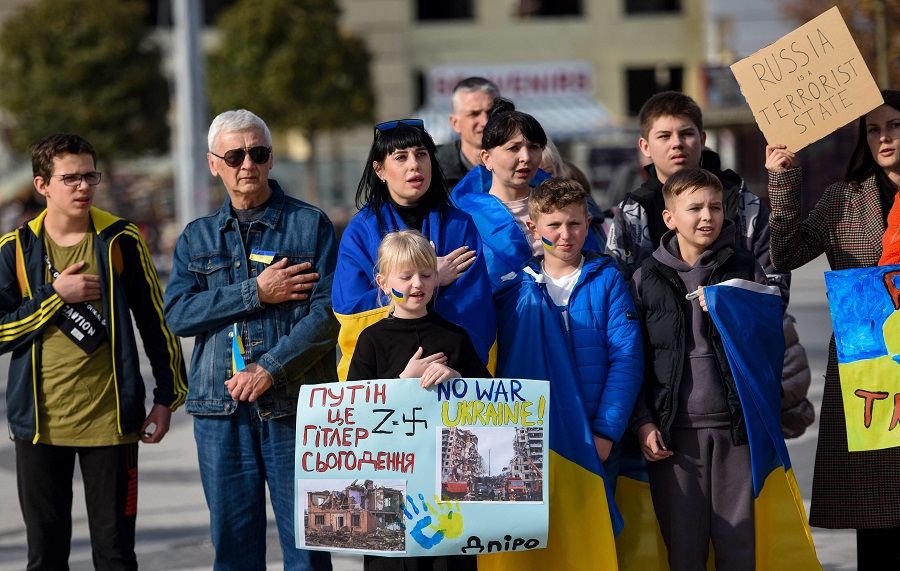
The documentary reveals the weakness of one-man diplomacy. In the documentary, Macron admitted that his diplomatic efforts to stop Putin had failed. Macron's "naivety" about dictators has discredited his diplomatic record. Macron has often talked about "naivety" in recent years.
Indeed, Macron's worship of de Gaulle is not thorough - if de Gaulle had illusions about Hitler, he would not have fled to England, from where he urged his citizens to resist the Germans.
Macron does not understand China - de Gaulle visited China, but he never talked to the Chinese about freedom.
Does not understand China
Third, Macron's remarks in China reflect his poor understanding of the country. At Sun Yat-sen University in Guangzhou, Macron said, "Critical thinking is just as important as access to knowledge. That's what makes you a free and emancipated individual."
Clearly, he has not read Mao's "Combat Liberalism", where Mao said, "We must use Marxism, which is positive in spirit, to overcome liberalism, which is negative... [a communist should look] upon the interests of the revolution as his very life and subordinating his personal interests to those of the revolution."
Mao's concept of freedom - subordinating personal interests to those of the revolution - remains the highest instruction in China's understanding of freedom today. This concept of freedom is completely different from the French motto Liberté, Egalité, Fraternité (liberty, equality and fraternity) and the concept of freedom in the Anglo-Saxon principle of individualism. Macron does not understand China - de Gaulle visited China, but he never talked to the Chinese about freedom.
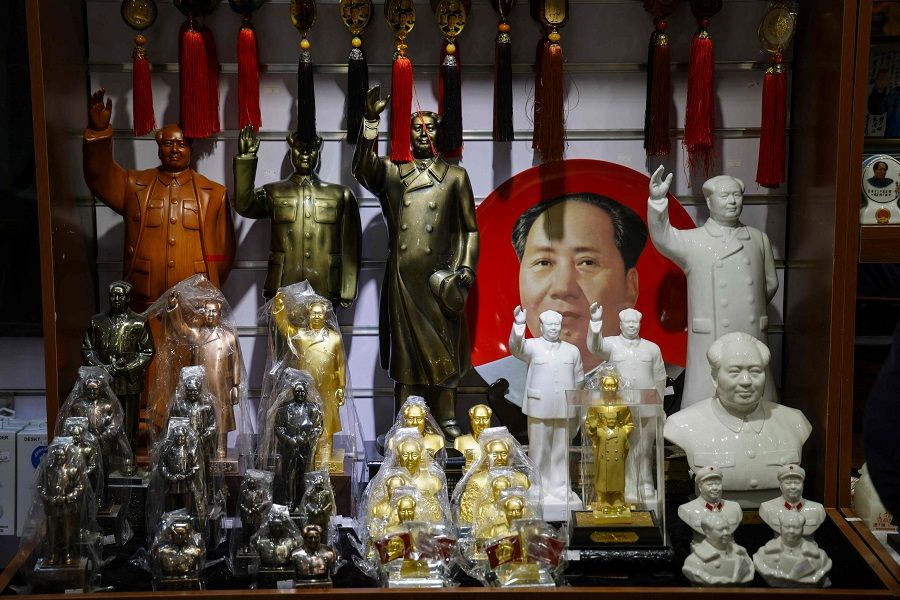
While Macron upholds the spirit of de Gaulle, he is detached from objective reality and will continue to flounder if he merely applies de Gaulle's nationalist spirit in theory, showing that he is indeed naive.
France is the US's oldest ally and de Gaulle was known for his rejection of the Anglo-Saxon world. If Macron wants to achieve "strategic autonomy" and not become a US vassal, he should ask the US to withdraw its support for Ukraine and leave matters in the hands of the EU. Does Macron dare to do so?
The more Macron tries to package himself as someone like de Gaulle, the more people would think that he is nothing like de Gaulle.
